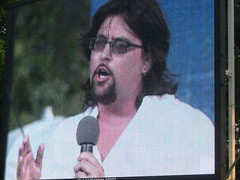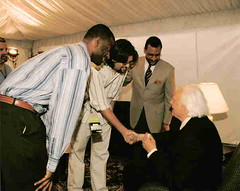Another Manifold Mystery
"In the midst of [the] poorest neighborhoods and shantytowns, there are ... trillions of dollars, all ready to be put to use if only the mystery of how assets are transformed into live capital can be unraveled." - Hernando de Soto, The Mystery of Capital (Basic Books, 2000), p. 37
Trillions of dollars are waiting to be transformed into economic freedom for the poorest of the world's poorest communities? A mystery indeed, one I'm intrigued to read. So yesterday I purchased South American economist Hernando de Soto's book, The Mystery of Capital.
In his own words, de Soto's basic premise follows:
"The major stumbling block that keeps the [non-Western] world from benefitting from capitalism is its inability to produce capital. ... "[Globally,] most of the the poor already possess the assets they need to make a success of capitalism. ... "But they hold these resources in defective forms. ... Because the rights to these possessions are not adequately documented, these assets cannot readily be turned into capital, cannot be traded outside of narrow local circles where people know and trust each other, cannot be used as collateral for a loan, and cannot be used as a share against an investment. ... "[P]oor inhabitants of [Third World and former communist nations] -- five-sixths of humanity -- do have things, but they lack the process to represent their property and create capital. They have houses but not titles; crops but not deeds; businesses but not statutes of incorporation. It is the unavailability of these essential representations that explains why people who have adapted every other Western invention, from the paper clip to the nuclear reactor, have not been able to produce sufficient capital to make their domestic capitalism work.
"This is the mystery of capital. Solving it requires an understanding of why Westerners, by representing assets with titles, are able to see and draw capital out of them. One the greatest challenges to the human mind is to comprehend and gain access to those things we know exist but cannot see." de Soto, pp. 5-7
I just started the book (halfway through Chapter 3), but it's a compelling read with applications for domestic poverty as well as economic development overseas.













1 Comments:
I read something a few years ago (I'm thinking Ron Sider or Tony Campolo) that argued that the biggest difference in capitalism's success in the West is our land ownership laws. This appears to corraborate that.
Post a Comment
<< Home